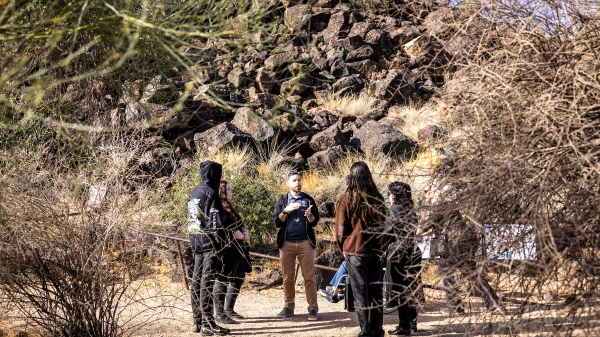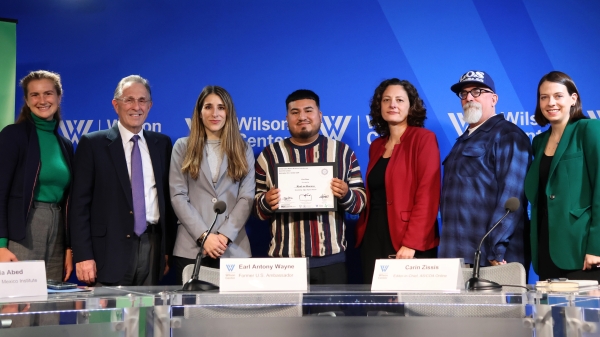On March 23, Arizona State University's Center for the Study of Religion and Conflict, in conjunction with Beyond Secularization: Religion, Science and Technology in Public Life, will host a public lecture exploring “the dark underbelly of the ‘postsecular.’”
The event will pay careful attention to the ways secular endeavors — like political movements, high tech surveillance and military operations — are characterized not by an absence of religion but by changing practices of religion, raising questions about the role of political and spiritual dissent in framing and resisting commonly held ideas of “progress.” The event will be held online and is open to the public.
“Opening a Star Gate to the Dark Gods”: Psychic Espionage, Satanic "Cults" and Occult Nazis on the Dark Web will feature a talk by Jason Ānanda Josephson Storm, chair and professor of religion, and chair of science and technology studies at Williams College, followed by a discussion with Storm led by Gaymon Bennett, associate professor of science, technology and religion, and associate director of the Lincoln Center for Applied Ethics at ASU. The event will be held at 11 a.m. Tuesday, March 23 and will be streamed live online via ASU Live, YouTube Live and a Zoom webinar.
Storm, who is a visiting scholar with the Beyond Secularization project, will look past the mainstream internet we use every day, to a subset of the hidden deepweb known as “the dark web,” where underground networks sell illegal services and secret societies function. There, Storm explains, believers in magic and the paranormal are a growing influence among far-right extremists around the world.
Tracing a 1947–48 Chilean expedition to establish an air base in Antarctica to the U.S. military’s “Star Gate” remote viewing project, in which the CIA launched covert investigations into psychic phenomena to a far-right explicitly “satanic” Neo-Nazi secret society, Storm will show tangled connections that, in practice, link rather than separate beliefs, practices and institutions of religion, science and technology. He will also show the ways the particular linkages in this case are also tied to white supremacy and contemporary anti-Semitism.
Extending ongoing conversations among the Beyond Secularization collaboratory (CoLab), this event invites public dialogue about instances of the intertwining of religion, science and technology that raise questions about ideas of progress that underpin common understandings of what it means to be human, to live a good life and to aspire to a better future.
As the Beyond Secularization team has shown, these instances of hybridization often point to an unease with traditional religion, the moral authority of scientific experts, and the aims of technological innovation — an ill-ease that puts to the test notions of progress that are sometimes taken for granted in modern institutions.
Get details and register for the event.
The Center for the Study of Religion and Conflict is an interdisciplinary research unit of The College of Liberal Arts and Sciences that examines the role of religion as a driving force in human affairs. The Beyond Secularization project is supported by the Center for the Study of Religion and Conflict and funded by a grant from Templeton Religion Trust.
Written by Jennifer Clifton
More Arts, humanities and education

Petroglyph preserve celebrates 30th anniversary with ancient, modern tales
The Deer Valley Petroglyph Preserve provides a beautiful walk through a pristine desert where chuckwalla lizards are as plentiful…

Kaleidoscope short film contest inspires powerful binational filmmaking in its second year
“We come to this country not to steal anybody’s jobs but to take advantage of the opportunities that the rest ignore. We’ve been…

ASU's Neal Lester reflects on life, death of poet Nikki Giovanni
When Neal Lester heard on Monday that poet and activist Nikki Giovanni had died, the news hit hard.Lester, the founding director…
